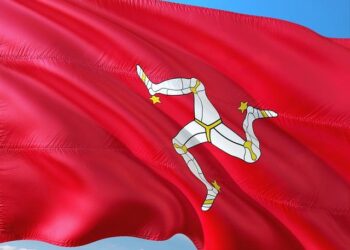Guest Lecture at Universit├żt Innsbruck: ŌĆ£├ģland Islands ŌĆō A Model of Autonomy?ŌĆØ A Comprehensive Analysis of Self-Governance Systems
Yesterday, Universit├żt Innsbruck welcomed an insightful guest lecture entitled ŌĆ£├ģland Islands ŌĆō A Model of Autonomy?ŌĆØ drawing a diverse audience including students, scholars, and community members intrigued by the complexities of regional self-governance. The presentation focused on the unique autonomous status of the ├ģland Islands, a cluster of islands in the Baltic Sea celebrated for its successful self-rule within FinlandŌĆÖs jurisdiction. Distinguished specialists highlighted how ├ģland has adeptly merged its historical background, cultural identity preservation, and political independence to foster a resilient and empowered society. Amidst ongoing global discussions about decentralization and self-determination, this event offered valuable perspectives on a governance framework that effectively balances local autonomy with national integration.
Decoding Autonomy through the Lens of the ├ģland Islands
Fundamental Elements Behind ├ģlandŌĆÖs Effective Self-Governance
The autonomous arrangement enjoyed by the ├ģland Islands serves as an instructive paradigm for regions worldwide striving to protect their cultural uniqueness while exercising substantial self-administration. Located strategically in Northern EuropeŌĆÖs Baltic Sea region, this archipelago exemplifies how localized governance can harmoniously function within broader state structures. Several core components contribute to its enduring success:
- Comprehensive Legislative Powers: The presence of an independent parliament empowers ├ģland to pass laws specifically tailored to address local needs.
- Cultural Identity Preservation: Maintaining Swedish as the dominant language remains central amid pressures from globalization and demographic shifts.
- Sustainable Economic Foundations: With robust sectors such as eco-friendly tourism and locally owned enterprises driving growth, ├ģland sustains financial sovereignty.
This model also emphasizes conflict avoidance through continuous dialogue and mutual respect between Finnish authorities and island representatives. Bilingual administrationŌĆöincorporating both Swedish and Finnish languagesŌĆöembodies this inclusive ethos. To provide updated context reflecting recent trends (2023 data), consider this comparative overview highlighting key indicators:
| Indicator | ├ģland Islands | Global Average (Similar Autonomous Regions) | |
|---|---|---|---|
| Unemployment Rate | 3.9% | 7.8% |
| Dimension | ├ģland Approach | Typical Regional Challenges < / tr > < /thead > |
|---|---|---|
| Level of Autonomy | Extensive legislative authority | Often limited or symbolic powers < / tr > |
| Support for Cultural Preservation | Strong institutional backing | Frequently neglected or underfunded < / tr > |
Fostering Peace through Autonomous Policies: Strategic Recommendations Ahead
The experience gleaned from the ├ģland Islands illustrates that granting meaningful self-rule can play a crucial role in nurturing social cohesion within culturally pluralistic settings.
By cultivating strong regional identities alongside inclusive governance frameworks,
conflicts are minimized while community ownership thrives.
Policymakers aiming to emulate these outcomes should contemplate adopting these strategic initiatives:
- Energize Decentralized Authority:Pursue devolution policies that allocate substantive decision-making power over vital sectors like education,
healthcare,
and fiscal management directly into regional institutions. - Create Inclusive Dialogue Platforms :Sustain forums ensuring all voicesŌĆöfrom minority communities to business leadersŌĆöare incorporated during policy development.
- Dynamically Protect Cultural Diversity :Pursue legislation paired with educational efforts explicitly dedicated toward preserving linguistic
and cultural distinctiveness. - Establish Strong Conflict Resolution Mechanisms :Create formal mediation channels emphasizing negotiation rather than confrontation when disputes arise.
To further illustrate these principles,
below is an updated comparative snapshot featuring select autonomous regions recognized for peacebuilding achievements (data current as of early 2024):Region Governance Model Cultural Preservation Efforts Conflict Resolution Approach ├ģ land Islands Extensive legislative autonomy with bilingual administration Robust language programs; active heritage promotion Institutionalized mediation fostering dialogue over discord ADVERTISEMENT















